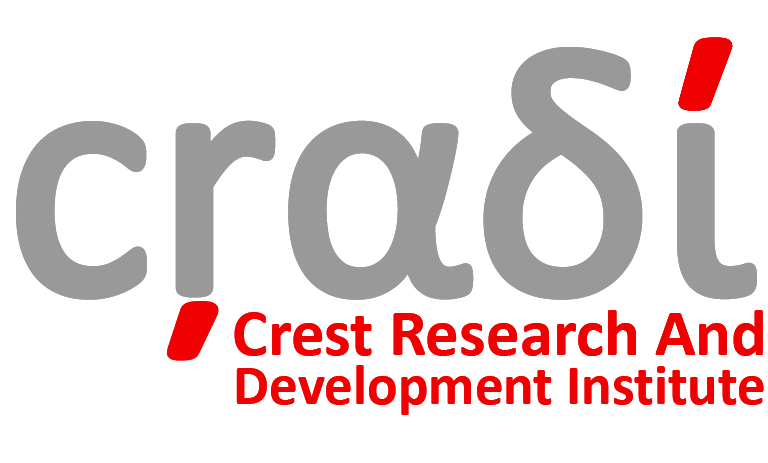At Crest Research and Development Institute (CRADI), we’ve always believed that the best solutions are born not in isolation, but through collaboration. When communities, young people, practitioners, and institutions unite to ask bold questions and build practical answers, real change happens.
We’re thrilled to introduce the Co-Creation and Innovation Lab (CCIL), a multidisciplinary, cross-sectoral space designed to nurture homegrown ideas, test inclusive development solutions, and amplify the voices of those too often excluded from innovation conversations.
The Lab isn’t just a place where innovation is encouraged it’s where innovation is expected. It’s a space where marginalized voices, especially those of youth, women, and grassroots actors, are central to shaping the future.
What Makes the CCIL Different?
The CCIL stands out because it embodies a philosophy where local innovation thrives through active participation and collaboration. Here’s how:
- Communities Lead the Way
We empower communities to take charge, ensuring their voices shape the solutions that affect them. Imagine a local farmer leading an initiative to develop sustainable practices tailored to their unique environment.
- Cross-Sector Collaboration
We bring together diverse sectors, breaking down silos. For example:
- Academia and Agriculture: Universities partner with local farmers to research sustainable farming practices, allowing agricultural students to develop crop rotation strategies that boost soil health and yield.
- Civil Society and Technology: Nonprofits focused on education collaborate with tech startups to create digital learning platforms. A civil society group might help design an app that provides students in rural areas access to tailored online resources.
- Government and Health Initiatives: Local governments team up with health tech companies to implement community health programs, such as mobile apps that allow residents to track health metrics.
- Private Enterprise and Environmental Sustainability: Corporations work with NGOs to develop sustainable practices, like recycling programs that educate consumers while reducing waste.
- Cultural Organizations and Youth Programs: Cultural institutions partner with youth organizations to promote the arts, providing workshops that encourage expression through performance art.
- Financial Institutions and Community Development: Banks collaborate with community leaders to offer tailored financial products that support local entrepreneurship, such as loan programs aimed at women-led businesses.
- Innovation Through Experimentation
We foster a culture where ideas can be tested, adapted, and reimagined. For instance, a new agricultural technique can be piloted in a small village, allowing for rapid feedback and improvement.
- Inclusive, Scalable, and Resilient Solutions
We build solutions that not only address immediate challenges but are also designed to scale and endure. Think of a health app developed in one community that can be adapted for use across the region.
What Will the Lab Actually Do?
The CCIL will support innovation across six core thematic areas:
- Education Innovation: The Lab will focus on developing alternative learning models and digital platforms tailored to underserved learners. It will work on EdTech tools for under-resourced communities and design context-specific teacher training models that merge technology with community insight.
- Agricultural Transformation and Food Systems: The Lab will explore smart and sustainable farming tools that blend indigenous knowledge with digital technologies. It will also support market linkage models for rural farmers and promote agritech solutions that address food security and climate resilience.
- Digital Inclusion and ICT for Development: The Lab will address the digital divide by creating accessible technologies for rural youth, women, and marginalized groups. It will contribute to open digital public goods for governance and civic engagement, supporting ICT tools that solve local challenges from the ground up.
- Health Innovation: CCIL will co-create health communication platforms and mobile health (mHealth) tools adapted to local needs. It will work on models that strengthen community health systems, promote accountability, and drive behavior change through user-centered design.
- Peacebuilding and Social Cohesion: The Lab will support the design of early warning and response tools co-created with communities. It will also develop peace education modules and dialogue facilitation toolkits, fostering innovations that encourage inter-ethnic and inter-religious collaboration.
- Climate and Environmental Resilience: CCIL will promote community-driven environmental education and green entrepreneurship. It will support circular economy innovations, clean technology prototypes, and tools for local climate data collection and risk mitigation.
What’s Next?
The CCIL will grow through storytelling, design sprints, ideation sessions, co-creation workshops, and field testing, but most importantly, through people. Through those who know their communities, live the challenges, and carry the spark to change things.
We’re grateful to everyone who has helped shape this vision so far and we’re just getting started. The official launch is around the corner, and we can’t wait to co-create the future together!
Have a brilliant idea? Connect with us and be part of the change!
